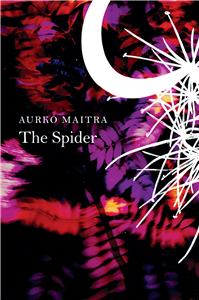-
Absurdism is a philosophical school that states that man’s attempt to find meaning ultimately fails. That is because the net amount of information and the very wide range of unknowns make certainty impossible; and yet some nihilists believe that despite such a fact, one must accept absurdity but also continue to search to find some meaning. As a philosophy, nihilism examines the fundamental nature of absurdity and how people should react after encountering “absurdity”. Absurdism holds that human endeavors to find intrinsic meaning ultimately fail, hence they are absurd since there is no meaning in terms of existence, at least concerning the individual. It is the absurdity that human beings struggle with, and many people commit suicide or euthanasia to give meaning to their lives because they think it is the only way out. The play The Blind Guitar depicts many people meeting on Poplar Street. While the atmosphere of the play contrasts Absurdism with optimism, there are strawberries as a symbol in the text of the play and by picking them from a tree in a nursing home, it tells the people who have hit the wall, and “So there is still hope that they see strawberries as a remedy for their sufferings.” Sufferings that are intertwined with the tragedy of life. In Absurd Theater, words are repeated over and over again, and the writers of this writing style try to portray the useless and machine-like relationship of people in a dramatic way and constantly emphasize these absurd themes. The book The Blind Guitar is a play in Absurdism style and tells the story of a blind man named Victor who plays musical menos on Poplar Street. In this play, everyone in turn bears problems and sufferings, sufferings that have afflicted the human body and its roots, and on the other hand, one wants to pursue a hope that has come out of the context of life. With all his disabilities, Victor wants to be friends with others. He is a dignified and noble human being who is rarely found in any society. In the play, The Blind Guitar, Victor, after years of blindness and abundant suffering, is still eager to reach his beloved and the power and greatness of his love have been preserved. A love that is not perceptible to everyone and they do not understand its meaning. Finally, in the game of life, one goes, one dies, one wanders, one lives but does not want to, one is born, one falls in love, one loses his love, one waits . . . The themes in the play The Blind Guitar include: escaping from a mental asylum, beheading in the middle of the city, seabirds committing suicide, discovering cancer medicine, lions dying in cages, waiting for newspaper news, and death. In the play, The Blind Guitar the author challenges wealth and poverty, in which rich people do not have an enriched and honest nature with all their possessions, and cultivate jealousy and depravity in them, and it raises a question in people’s minds as to why society’s only concern has become money. So what about human values? In a part of the book The Blind Guitar, we read: Henry: What’s this? Victor: Strawberries . . . Henry: What should I do with it? Ernest: This is a medicine for creating hope . . . Henry: I’ve nothing to do with hope. Victor: If you eat this, from now on you’ll become friends with hope, my friend . . . Henry closed his eyes quietly and put another strawberry in his mouth. Victor: How was it? Henry: I may not be well, I’m sick, but I’m still alive and I want to live. Ernest: What sound do you hear now? Henry: That the seagull didn’t kill itself . . . it killed life. Where do you find so many life berries?































